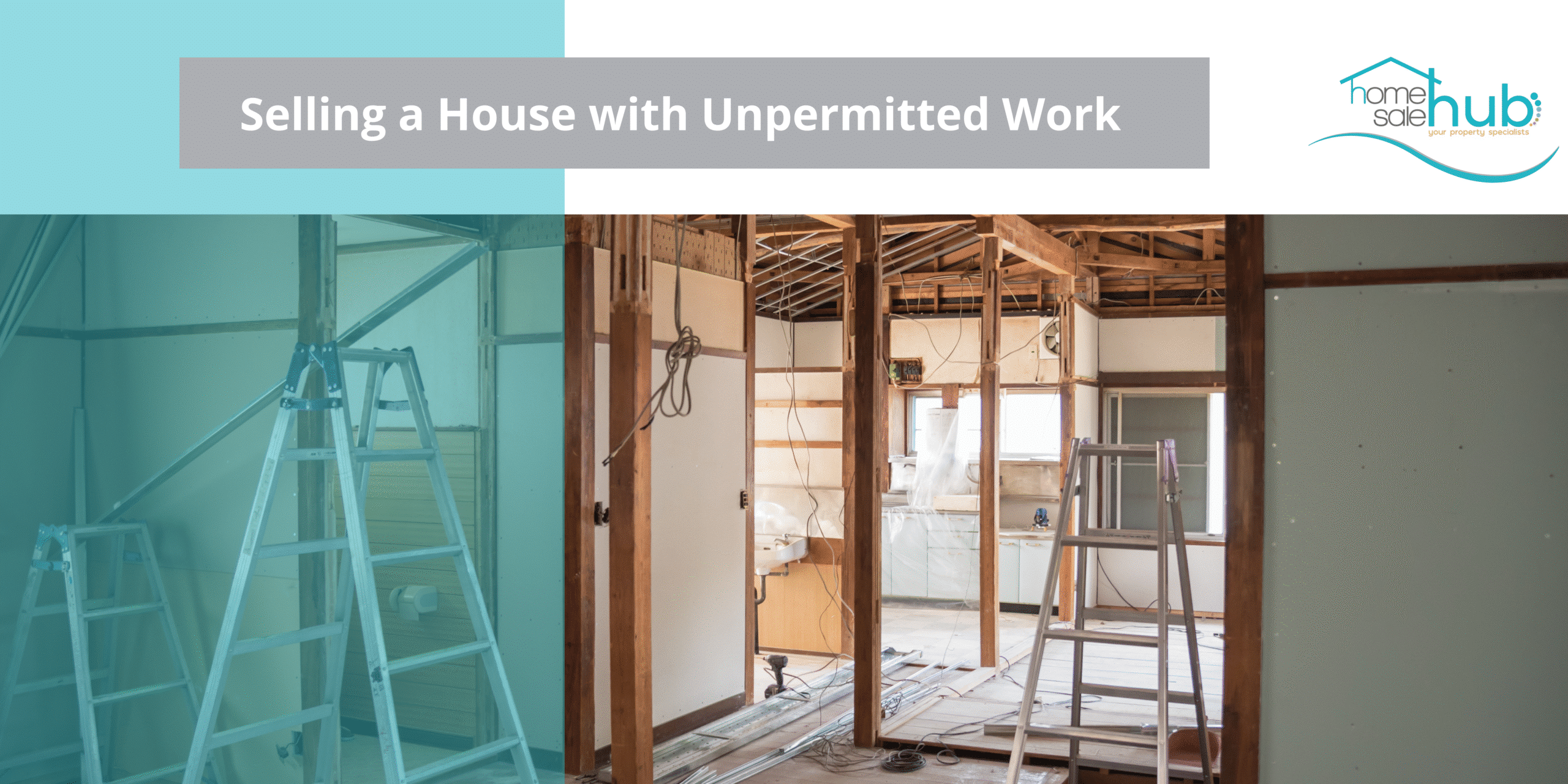Address
38f Goring Rd,
Worthing
BN12 4AD
What do you need to know:
Selling a home is complicated enough without having to explain work that was done without proper permissions. Whether it’s a loft conversion, garage extension, or a newly installed kitchen, any unauthorised building work can present challenges. This guide outlines what unpermitted work means, how it affects the sale of your property in the UK, and the options available to resolve the issue.
What Is Unpermitted Work?
Unpermitted work refers to any renovation, structural change, or alteration made to a property without the required planning permission or building regulations approval. In the UK, most major changes to a property require either:
- Planning Permission, granted by your local planning authority, and/or
- Building Regulations Approval, which ensures the work meets health and safety standards.
Common examples of unpermitted work include:
- Installing or removing walls
- Loft conversions without inspection
- Building an extension beyond permitted development limits
- Plumbing and electrical work without certification
- Window or door replacement that affects structure or fire safety
Can You Sell a House with Unpermitted Work?
Yes, you can legally sell a house with unpermitted work, but it can reduce your buyer pool, lower the property’s value, or cause delays in the transaction. Buyers may be reluctant to proceed if they fear enforcement action or face unexpected repair costs later.
Mortgage lenders may also refuse finance for a property with unapproved alterations, particularly if the work compromises safety.
Options for Selling with Unpermitted Work
1. Retrospective Planning Permission
If the work is structurally sound and completed following building standards, you can apply for retrospective planning permission through your local authority. This legalises the work post-completion.
However, approval is not guaranteed. If refused, you may be required to undo the work.
2. Regularisation Certificate
A regularisation application can be submitted to your local Building Control body for building regulation breaches. This typically involves an inspection and may require uncovering parts of the structure to verify compliance.
This route applies only to work carried out after 11 November 1985.
3. Indemnity Insurance
An alternative to seeking approval is to take out indemnity insurance, often suggested by conveyancers. It protects the buyer (and lender) against enforcement action, provided the local authority has not been made aware of the issue.
Note: It does not validate the work nor cover defects. It is most useful when selling to a buyer who wishes to avoid delays.
4. Sell to a Cash Buyer or Developer
If time is critical or the work is extensive, selling to a cash buyer or property investor may be more feasible. These buyers are typically less concerned about permissions.
How to Disclose Unpermitted Work
Sellers must complete the TA6 Property Information Form truthfully. This legally binding document requires disclosure of any building work and whether permissions or certificates exist.
Failing to disclose known unpermitted work could lead to legal disputes post-sale, especially if the buyer suffers losses as a result.
FAQs
What Happens If You Sell a House with Unpermitted Work?
You can still sell, but buyers may ask for discounts, refuse to proceed, or require indemnity insurance. Solicitors will flag the issue during conveyancing, and it may affect mortgage approval.
Can You Get Retrospective Building Regulations Approval?
Yes. Apply through your local council’s Building Control for a regularisation certificate. An inspector will assess the work’s compliance. If approved, you receive certification; if not, remedial work may be needed.
How Long Before Unpermitted Work Is Safe from Enforcement?
In England and Wales, enforcement action for planning breaches typically must be taken within four years (for operational development) or ten years (for change of use). For building regulations, there is no fixed time limit, but insurers may still require cover.
Should You Buy a House with Unpermitted Work?
It depends on the scope and quality of the work. Seek professional advice, request structural surveys, and discuss indemnity options. Always factor in potential remedial costs.
Selling a property with unpermitted work is not impossible, but it does complicate the process. By understanding your legal responsibilities and preparing suitable documentation or insurance, you can reduce risks and maintain the value of your home. Buyers value transparency and safety, and presenting clear solutions will increase your chances of a smooth sale.
If you’re unsure about your next steps, consult a solicitor or estate agent with experience in property compliance.
Sell Your Property Without the Hassle
At Home Sale Hub, we buy houses in any condition – with or without planning permission, building regulations, or completed paperwork. Whether your property has unpermitted work or needs extensive repairs, we’ll make a fair cash offer and handle the legal process quickly and discreetly.
Avoid delays, legal uncertainty, and endless viewings. Sell your home as-is, on your timeline.
Get your no-obligation offer today – contact Home Sale Hub now.


